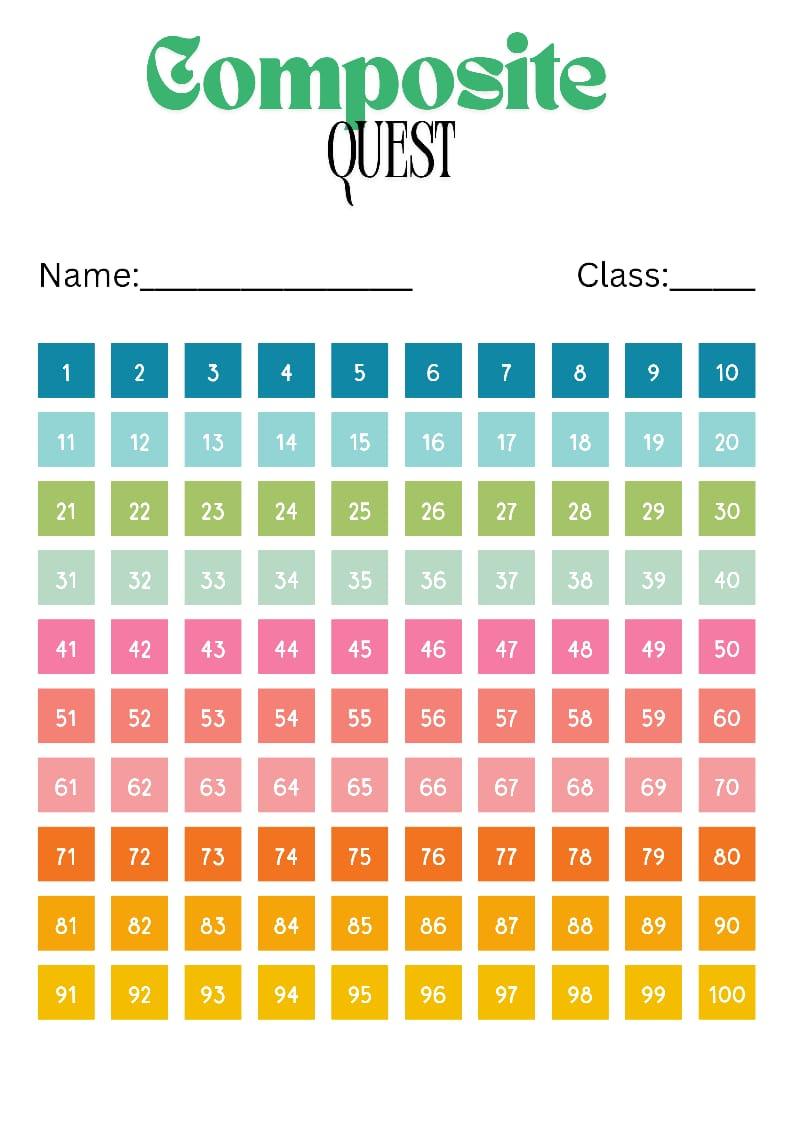Session 34: Composite Numbers
|
Session Title |
Composite Numbers |
|
Objective |
|
|
Concepts |
A number that is divisible by a number other than 1 and the number itself, is called a composite number. |
|
Material Required |
|
|
Methodology |
Activity-based and Cognitive skill-based |
|
Session Duration |
90 Minutes |
Introduction Activity (30 minutes)
Guess My Number (15 minutes )
"Guess My Number" is a math-related game where one person thinks of a number between 1 and 100 and gives hints about its properties, such as "My number is odd" or "It's a multiple of 3." Students take turns guessing the number, and after each guess, they receive a hint, like "Too high" or "You're getting closer." The game continues until someone correctly guesses the number.
promoting critical thinking, problem-solving, and mathematical reasoning in a fun and engaging way.
Composite Number:- Define ( 15 minutes )
A composite number is a natural number greater than 1 that has more than two factors. This means it can be divided evenly by numbers other than 1 and itself.
For example:
4 is composite because its factors are 1, 2, and 4.
6 is composite because its factors are 1, 2, 3, and 6.
In contrast, a prime number has only two factors: 1 and itself (e.g., 2, 3, 5, 7).
Main Activity (55 minutes)
Composite Quest ( 45 minutes )
Each child receives a card with the numbers 1 to 100 written on it. They are then instructed to circle the composite numbers. The first child to complete the task wins.
Review Questions (10 minutes)
Fill in the Blanks
- A composite number has at least ___ factors.
- The smallest composite number is ___.
- ___ is the only even prime number and not a composite number.
Follow up Tasks(5 minutes)
Home work
Application Question
Think of a real-life example where knowing about composite numbers might help (e.g., arranging desks, dividing chocolates). Write 2-3 sentences about it.
Expected Learning Outcome:
Knowledge building-
-
Understand factorization
-
Differentiate Prime and Composite numbers
Skill Building-
-
Critical thinking
-
Pattern recognumbers
-
Speed and accuracy

